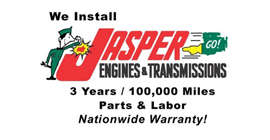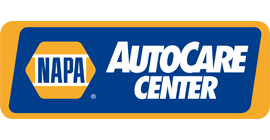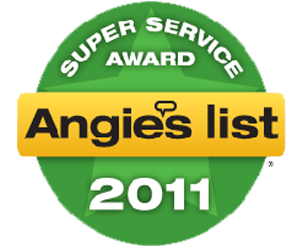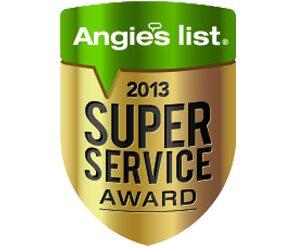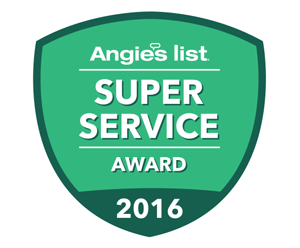AUTONET TV
Archive for January 2022A Sticky Brake Situation (Parking Brake Service and Maintenance)Posted January 30, 2022 11:02 AMWe've all been there. You park your vehicle on a steeper than usual hill and worry about it rolling down while you're running your errands. So you decide you'll use the parking brake. When you get back, you release the parking brake, hit the ignition, put it in gear and—uh, oh—you can feel the parking brake is still on. It's stuck. What do you do now? Welcome to the world of infrequently-used parking brakes. Yes, they do stick for several reasons. It's common for components to corrode and get locked up. Sometimes if you have applied it extra hard, it can jam. Could be a rusty cable, could be a spring that doesn't return the brake to its disengaged position. Some pieces just break when they're stressed for the first time in a while. A caliper or the pivot arm it's on can also stick. There are a few things you can try to unstick it. Carefully rock your vehicle by putting it first in drive and then reverse. You have to be careful doing that, though, because sometimes you can damage the transmission. You can try working the parking brake control a few times to see if that will loosen the corrosion. If you can't unstick it, you can try driving slowly a short distance to a repair facility near you. Sometimes it won't cause damage to the brakes but it depends on how tightly the parking brake was applied and what was stuck. You may also have to have your vehicle towed to a repair facility. In any case, once you've seen these symptoms, have your vehicle brakes looked at by a professional who can fix the root of the problem. Better yet, don't let your vehicle get in this condition; regular maintenance and inspections by a trained technician should prevent you from getting in a jam somewhere thanks to a stuck parking brake. You could use a "brake" like that. AutoChoice Service Center Inc. The Right Stuff (Choosing Replacement Parts)Posted January 23, 2022 8:54 AMLet's face it. Vehicles are complicated machines, each having thousands of parts. And since they're subjected to heat, cold, vibrations, bumps and much more, these parts wear out and need to be replaced. When your service advisor says you need a new part, you may have many options. Let's say you need a new muffler. One choice would be to get exactly the same part that was installed when the vehicle was manufactured. The advantages are that it will perform the same way as the one it's replacing and will likely last about the same amount of time as the original. Some mufflers are made by the same companies that supplied the automaker when your vehicle was new (they call that an OEM part—Original Equipment Manufacturer). And often those are the same as the part you'd buy from a dealer. A reputable vehicle service facility will know which ones these are because they replace mufflers all the time and do their homework. The good news is there are many different mufflers available from several manufacturers. These are called aftermarket parts. Some of them may use different metals or a different construction technique. Some may sound a little sportier while some may make your engine perform better. Your service advisor will discuss what your driving habits are and help choose the part that's best for you. You may be able to get a part that's better than the one originally installed. Here's an example. A repair shop discovered one owner's vehicle had developed cracks and leaks in the hoses that attach to the heater core. They were made of plastic, and heat and pressure had caused the originals to crack. The service advisor recommended they replace it with an aftermarket part that was made of aluminum instead, one that was more durable than the original part. Some aftermarket parts cost more, some cost about the same or less. Depending on how and where you drive and what you want out of your vehicle, you can decide to buy more economical parts which might be the best fit for your needs. Or you may decide to upgrade to a better, more expensive part. AutoChoice Service Center Inc. Bad Vibes (Disc brake rotor problems)Posted January 16, 2022 8:33 AMIf you were to name the most important safety feature on your vehicle right now, what would your answer be? A lot of driving experts would agree that it’s your brakes. Most newer vehicles use a well-engineered and efficient style of brakes called disc brakes. The name disc brakes comes from one of the components: a disc attached to the wheel hub that is squeezed by parts called calipers. If you’ve ever ridden a bicycle with hand brakes, you probably have seen how they squeeze against the rim of the bike wheel to stop the bike. It’s similar to the way your vehicle’s calipers squeeze against the disc rotor, with added parts called brake pads attached to the calipers that are what create the friction and stop your vehicle. Here’s why disc brakes need regular maintenance. Over time, that friction creates wear and tear on the brake pads and the rotors, and you’ll start to see the signs. Your brakes may have one of the 3 “S” sounds: squeaking, squealing, or scraping. The sound is usually the first sign of brake pad wear which can lead to rotor damage. Soon you may notice a pulsating or vibration when you brake. That’s because your once smooth and straight rotor disc is warping from the heat generated from friction. Or it may be due to wear. Eventually, your brakes will take a longer distance to stop your vehicle, and the rotors can have grooves carved into them. When you start noticing any of these signs, it’s a good idea to have them inspected by a trained technician. They will measure the rotor thickness, check wear patterns for grooves and heat discoloration, and see how much of the brake pads remain. They will also check to make sure all brake components are moving freely, check your brake fluid, and look for corrosion. Most vehicle manufacturers require worn or damaged rotors to be replaced, not resurfaced. It’s all part of a complete brake job, replacing pads and the brake hardware parts along with the rotors. It reduces the chance of premature failure. How often you will need your brakes serviced depends on the manufacturer’s recommendations, your driving habits, and the environment you live in. Your service facility can recommend the best replacement parts based on those factors. Regular maintenance and attention are vital for keeping your brakes performing like they are designed to. Remember, your brakes are your vehicle’s most important safety feature. AutoChoice Service Center Inc. Steer Me Right! (Failing Power Steering Hose)Posted January 9, 2022 12:20 PMMost drivers love how easy it is to turn their vehicles, and they have power steering to thank. Engineers have figured out a way to take some of your engine's power to help you turn. Without it, steering can be quite a chore. New power systems are electric, but there are still plenty of the older hydraulic power steering systems out there, and it's wise to keep them working the way they should so you don't find yourself stranded without power steering. Those hydraulic power systems use a fluid under pressure that is pumped to a device that helps you turn your wheels more easily. It's that pressure that presents the challenge. After your vehicle's seen a few years on the road, you may find your steering isn't quite as easy as it was. You may hear a groaning or humming sound when you turn. One component that can fail is the pressure hose that carries that fluid from the power steering pump to that turning assist mechanism. The hose is made of rubber and can leak, crack, get damaged by heat and debris or just get too old. If yours is ten years old or older, it's likely getting close to the end of its life. If you think you can just wait until it fails completely, think of these possible consequences. If the hose or a coupling fails, power steering fluid can blow all over the hot engine. That fluid is flammable and can start a fire. Or if you've been driving for a few weeks with low power steering fluid, that could ruin your power steering pump. Replacing the pump is an extra expense you can probably live without. A technician will replace the necessary parts and make sure air and contaminants are bled or flushed from the system. Then, he or she will check for leaks. Just think how important a properly working power steering system is for safe operation of your vehicle. Make sure you keep yours in top shape for your safety's sake and the safety of others on the road around you. AutoChoice Service Center Inc. Before You Buy that Used Vehicle (Having a Used Car Inspected Before Buying)Posted January 2, 2022 10:28 AMLet's face it. New vehicles are expensive, so finding a good used one can save drivers a lot of money. It's tempting to look through ads, find a private seller who has what you're looking for and pay a price you think is a great deal. But when you go over to look at a used car, do you really know what to look for to uncover potential problems with it? The answer is probably no. Used cars can look great on the outside, maybe even have lustrous paint and a super clean interior. But is it possible that vehicle's been in an accident? Does it have electrical problems you can't detect easily? Is any fluid leaking that you don't know about? Think about it. You are about to spend thousands of dollars for a complex machine and you're considering judging its condition without much expertise. That's why it makes sense to have a qualified technician inspect any used vehicle you're considering buying. Many vehicle repair facilities will do it for around $100-$200. They'll check to see what's working right and what's not working. They'll check for leaks and how strong the battery is; they'll look for signs it's been in an accident or has been painted. They'll look in places you'd find inaccessible, and they'll take it for a test drive to see what noises, vibrations and smells might give clues to any major problems. An inspection usually takes about an hour. You should have an inspection done by a technician you know and trust. They'll have your best interests in mind. And the inspection should be done before you start negotiating a price with the seller. It's money well spent to either give you peace of mind that you're getting a good vehicle or steer you away from a lemon. One sign a used vehicle isn't a good deal? If the buyer refuses to let you have it inspected. That says just about everything that needs to be said. AutoChoice Service Center Inc. Prepare Your Windshield for Winter (Wiper Blades and Fluid for Freezing Temperatures)Posted January 1, 2022 8:09 AMWinter and freezing temperatures present challenges for different parts of your vehicles. For example, winter tires give you better traction on snow. But some parts of your vehicle that may need special attention for winter are your windshield wipers. You may have found yourself in the middle of a snowstorm when your windshield wipers are doing nothing but streaking slush that ices up on contact on the glass. Now you're more blind than you were before! Obviously being able to see during a snowy or icy winter event is important for the safe operation of any vehicle. So keeping your windshield and rear window clean can go a long way to guarantee you can see your surroundings. Let's start with the wipers. Blades that are good for hot weather may not be robust enough for freezing weather. You can buy special winter wiper blades that stay flexible during sub-zero temperatures. The stiffer frames that hold them have a rubber covering that prevents ice and snow from building up. Another style is beam wipers that have a one-piece design, intended for use all year long. Since these have no separate frame, ice can't build up like on traditional frame wipers. If you've ever had salty road brine kicked up on your windshield, you know it can blind you in a second. So you absolutely must have windshield washer fluid available to clear your vision. The fluid you use during the warm weather months will often freeze below 32°F/0°C, and that can actually make things worse by icing up your windshield when you spray it. Worst of all, it may freeze in your washer reservoir. Be sure to use washer fluid that is meant for sub-freezing temperatures; special formulas will remain a liquid in weather as cold as -30°F/-34.4°C. Some contain alcohol to keep them flowing; some have a little antifreeze that will melt snow and ice. If you do use these liquids, make sure to keep them away from small children and pets because they're poisonous if they drink them. Each climate is different, and there are windshield products to meet your needs. Your service advisor can recommend which ones will work best for you. The idea is in winter, you need to be able to see.
| ||
SearchArchiveDecember 2009 (4)January 2010 (2) February 2010 (4) March 2010 (4) April 2010 (4) May 2010 (3) June 2010 (1) July 2010 (3) August 2010 (5) September 2010 (2) October 2010 (3) November 2010 (4) December 2010 (5) January 2011 (4) February 2011 (4) March 2011 (5) April 2011 (4) May 2011 (4) June 2011 (2) August 2011 (4) September 2011 (3) October 2011 (1) December 2011 (4) February 2012 (1) March 2012 (5) April 2012 (4) May 2012 (1) June 2012 (3) July 2012 (1) August 2012 (1) November 2012 (1) December 2012 (2) March 2013 (1) April 2013 (3) May 2013 (2) October 2013 (5) November 2013 (2) January 2014 (2) February 2014 (4) March 2014 (1) July 2014 (4) August 2014 (7) September 2014 (4) October 2014 (5) November 2014 (4) December 2014 (5) January 2015 (4) February 2015 (4) March 2015 (4) April 2015 (4) May 2015 (2) June 2015 (6) July 2015 (2) September 2015 (3) October 2015 (3) November 2015 (5) December 2015 (1) March 2016 (5) April 2016 (4) May 2016 (5) June 2016 (4) July 2016 (4) August 2016 (5) September 2016 (4) October 2016 (5) November 2016 (4) December 2016 (4) January 2017 (5) February 2017 (4) March 2017 (4) April 2017 (4) May 2017 (5) June 2017 (4) July 2017 (5) August 2017 (3) September 2017 (3) October 2017 (5) November 2017 (4) December 2017 (3) January 2018 (5) February 2018 (4) March 2018 (4) April 2018 (5) May 2018 (4) June 2018 (4) July 2018 (5) August 2018 (4) September 2018 (5) October 2018 (4) November 2018 (4) December 2018 (5) January 2019 (5) February 2019 (4) March 2019 (5) April 2019 (4) May 2019 (4) June 2019 (5) July 2019 (4) August 2019 (4) September 2019 (5) October 2019 (4) November 2019 (4) December 2019 (5) January 2020 (5) February 2020 (4) March 2020 (5) April 2020 (4) May 2020 (5) June 2020 (4) July 2020 (3) August 2020 (5) September 2020 (4) October 2020 (4) November 2020 (5) December 2020 (4) January 2021 (6) February 2021 (4) March 2021 (4) April 2021 (4) May 2021 (5) June 2021 (4) July 2021 (4) August 2021 (5) September 2021 (4) October 2021 (5) November 2021 (4) December 2021 (4) January 2022 (6) February 2022 (4) March 2022 (4) April 2022 (4) May 2022 (5) June 2022 (4) July 2022 (5) August 2022 (4) September 2022 (4) October 2022 (5) November 2022 (4) December 2022 (4) January 2023 (5) February 2023 (4) March 2023 (4) April 2023 (5) May 2023 (4) June 2023 (4) July 2023 (5) August 2023 (4) September 2023 (3) October 2023 (1) January 2024 (1) February 2024 (4) | CategoriesParts (7)Automotive News (8)Service Standards (12)Maintenance (52)Fuel System (46)Transmission (11)Tires and Wheels (40)Monitoring System (3)Dashboard (3)Steering (14)Battery (20)Service Intervals (9)Brakes (22)Cabin Air Filter (8)Drive Train (9)Fluids (16)Shocks & Struts (9)Inspection (10)Headlamps (6)Timing Belt (6)Windshield Wipers (9)Check Engine Light (6)Alignment (16)Cooling System (19)Air Conditioning (17)Safety (6)Differential Service (3)Diagnostics (5)Fuel Economy (10)Engine Air Filter (2)Exhaust (12)Keys to a long lasting vehicle (4)Diesel Maintenance (1)Suspension (3)Serpentine Belt (6)Older Vehicles (4)Emergency Items (1)Alternator (6)Winter Prep (7)Fuel Saving Tip: Slow Down (2)Auto Safety (6)Trip Inspection (4)What Customers Should Know (81)Warranty (1)Tire Rotation and Balancing (3)Wheel Bearings (1)Oil Change (7)Safe Driving (1)Customer Detective Work (1)Tires (10)Spark Plugs (2)Water Pump (1)Winter Tires (1)TPMS (3)Transfer Case Service (1)PCV Valve (2)Brake Service (4)Fuel Pump (1)Shocks and Struts (1) | |
Reviews
|
I had my car in a while back for brake work and once again I was extremely pleased with Auto Choice. They are professional and honest (a rare combination) and I know that the work will be done correctly. I drive a Subaru and I completely trust my technician Jake to diagnose and expertly correct any issues that come up. I definitely will be back the next time I need anything car related. Thank you Jake and Auto Choice! Cathy Kinsman, 04/17/2024 |
|
|





